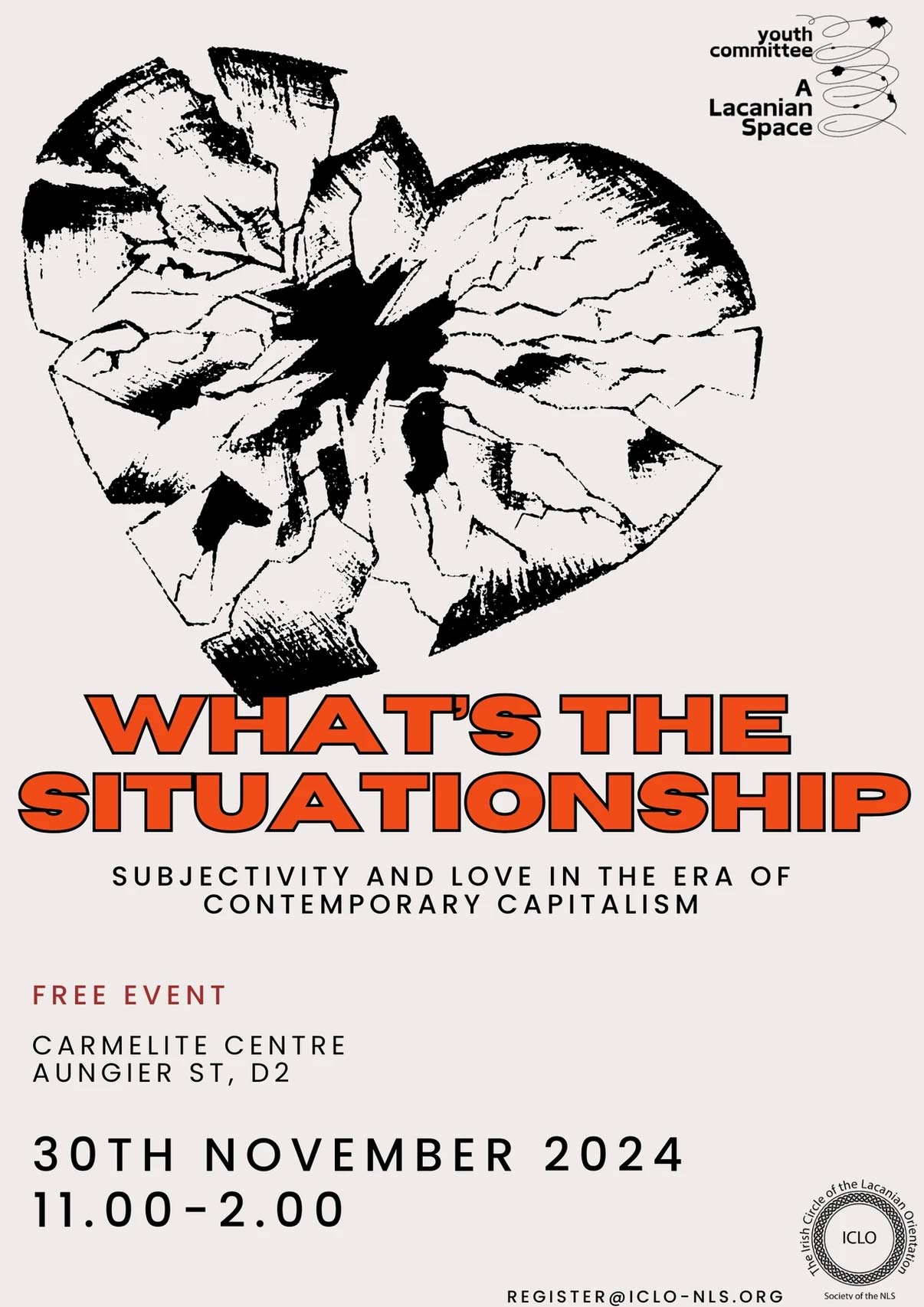What’s the Situationship – Subjectivity and Love in the Era of Contemporary Capitalism
Contact: info@iclo-nls.org
When: 30th November
Time: 11am
Where: Carmelite Centre
What’s the Situationship?
Subjectivity and love in the era of contemporary capitalism
Introduction
This event is designed for people who may be interested in, but not particularly familiar with, Lacanian Psychoanalysis. It seeks to explore and open discussion on issues that are of contemporary relevance. It forms part of a series of events hosted by ICLO-NLS under the title “A Lacanian Space” that welcomes people who may be new to ICLO-NLS and to the various seminars and other events it organises as part of its annual academic programme.
Theme
Contemporary capitalism, underpinned by its neoliberal ideology, is in many ways different to so-called classical capitalism which essentially divided the owners of production from the exploited workers whose labour provided profit. For example, capital today is not only globalised but is financialised, meaning it deals in credit via financial markets whereby almost every subject and/or country can acquire debt, which is repayable with interest. In this context it is interesting to ask certain questions, such as, what is the “mental infrastructure” of capitalism today? How are we socialised into it and what are its psychological costs? How do we unconsciously shape and support it?
Through a series of short talks, with plenty of time for discussion, we will explore how psychoanalysis can aid us in thinking about such issues, about subjectivity, love, and ideals in an era transformed and dominated by the hegemonic symbolic system of capitalism that today touches every aspect of our lives.
For example, and in his seminar on ethics (1959-60), Lacan famously stated that the modern superego no longer prohibits or inhibits, but rather says “Enjoy!”, a command that is very visible today, as subjects get caught up in what can be termed a “tyranny of self-optimisation” correlated with epidemic like proportions of depression/anxiety in western culture. The “always-on”, “24-7” digitalised and consumptive nature of contemporary capitalism is clearly a significant feature here.
In 2003, Zygmunt Bauman published Liquid love: On the Fragility of Human Bonds”, a work which explored how commodification impacts on and weakens human bonds, particularly in the sphere of sex, eroticism and love. Today traditional love relations are changing, with more people choosing polyamory, forms of open relationship, or indeed an avoidance of relationships. For Lacan, love covers a void, which he called the “non-sexual rapport” and so we can ask how the “risk of love” manifests itself today, how it is engaged with, noting that for young people a new signifier has emerged to describe one feature of this changing landscape – “situationship”.
Finally, we will explore how psychoanalysis, a clinic that operates under transference, functions. For example, by asking the question of what can be expected from entering the psychoanalytic experience, one which is quite different to the dominant psycho-educational therapies that are so prevalent today.
